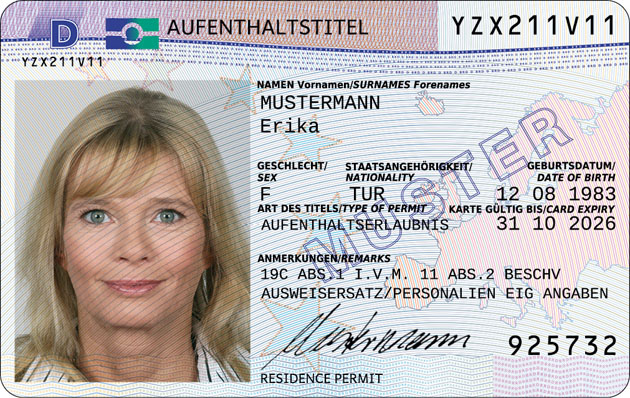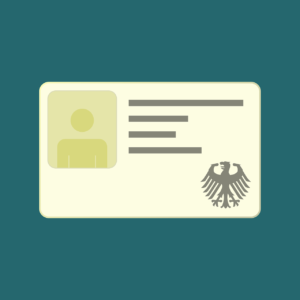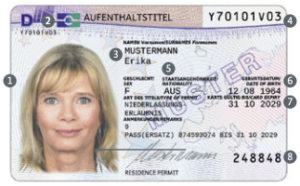A Visa allows you to enter Germany, but your stay is limited to no more than 90 days in a 180-day cycle.
If you want to stay in Germany for longer than 90 days, you will need to apply for the correct visa in your home country and once you are in Germany, apply for the subsequent residence permit (Aufenhaltstitel) at the competent Aliens Authority in Germany.
It will also regulate what you are allowed to do in Germany, for example doing weekend work while on a study visa.
A temporary residence title (Aufenthaltserlaubnis) is granted for a limited time and for a specific purpose.
Blue cards and an ICT cards are also seen as a temporary residence permit in accordance with Section 18c AufenthG (German Residence Act)
Specific purpose
According to the BMI,
Possible purposes for a temporary residence title can be:
- Residence for the purpose of training (§§ 16-17 AufenthG),
- Residence for the purpose of gainful employment (§§ 18 ff. Residence Act),
- Residence for reasons of international law, humanitarian or political reasons (§§ 22-26, 104a, 104b AufenthG),
- Residence for family reasons (§§ 27-36a AufenthG).
The granting of a residence permit for each of these purposes is subject to its own requirements. These are also mentioned in the Residence Act – partly for all purposes in the general part of the Residence Act and partly for the respective purpose.
An extension of the residence permit is only possible if the requirements that were required when it was first issued continue to be met. However, the competent authority can rule out an extension if the stay is intended to be only temporary. When extending the permit, it must also be taken into account whether a foreigner has complied with their obligation to attend an integration course properly. If the foreigner was or is obliged to take part in the integration course, the residence permit is generally only extended by one year until the foreigner has successfully completed the integration course or proves that his or her integration into society and social life has taken place elsewhere.

- This is an example of an Aufenthaltstitel, under Art des Titles it will indicate Aufenthaltserlaubnis.
- The “Gultig bis” is the validity date of your residence permit and not just of the card as in the case of a permanent residence card. Make sure you apply for an extension of your residence permit early enough.
- Under the Anmerkungent there will be information on the specific purpose and any limitations. In this example 18 ABS 4 is referring to Chapter 19c of the Act on Residence, Section 1 I.V.M 11 Section 2.
- If you get a “Zusatzblatt” or supplementary sheet, more detailed information can be found there, for example, “Erwerbstätigkeit gestattet” means employment is permitted
Employment limitations
There is only an entitlement to gainful employment if this entitlement is expressly included in the residence permit (in the form of an electronic residence permit or in the form of an adhesive label).
The scope of a permit for gainful employment is entered in the residence permit or it is documented on a supplementary sheet (Zusatzblatt)
Travel in the Schengen area
If there is no limitations on the amount of entries in and out of Germany, you can use the permit to travel to and from Germany into the Schengen area.
Legal Basis
Related content

Temporary proof of German Residence
To stay in Germany longer than 90 days in a 180 period, you will need a residence permit. Qualifying for a residence permit will depend,

Permanent Residence
Permanent residence in Germany is called a Niederlassungserlaubnis and may be granted in the form of a Settlement permit or Permanent EC residence permit. Very important!! The

List of Long Stay Visas
Long Term visas are seen as visits longer than 90 days and will typically be for work or study visits. If your application is approved,


You must be logged in to post a comment.